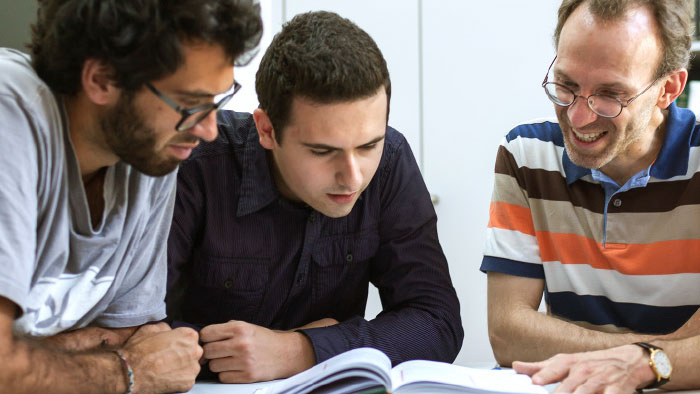Setting up a Junior Research Group
By funding Junior Research Groups, the Elite Network of Bavaria offers academically outstanding early career researchers from around the world both attractive career prospects and the opportunity to forge their path to academic independence. Applications to set up a Junior Research Group should be sent directly to the Elite Network of Bavaria’s office.
Requirements for a successful application
Postdoctoral researchers who graduated in the last two to five years and who have not worked at their host institution in the past two years are eligible to apply.
Connection to an Elite Graduate Program or Doctorate Program
Junior Research Groups are connected to either an Elite Graduate Program or an International Doctorate Program at their home institution; this helps to ensure they are embedded in a particularly attractive academic environment. Each Elite Graduate Program or International Doctorate Program can only be affiliated with a single Junior Research Group at any given time.
As a result, an application to set up a Junior Research Group can only be submitted following prior consultation with the Head of a relevant Elite Graduate Program or International Doctorate Program.
Application
As well as evidence of outstanding academic achievements, we expect applicants to submit innovative, original applications based on research at the limits of knowledge in their respective disciplines.
Applications must also detail the extent to which the members of a Junior Research Group participate in teaching and research. The important aspect here is to ensure that other teaching and research work will not impair the proposed project.
Application selection
Applications are selected by the International Commission and external expert committees in a multi-stage process.
Outline phase
After a call for applications has been issued, outstanding postdoctoral researchers can apply for the establishment of a Junior Research Group at the Elite Network of Bavaria directly. In the outline phase, the applicants first need to submit a draft propsal outlining their proposed project.
Having examined the submissions, the International Commission selects the most promising project outlines and asks the respective applicants to flesh out their proposals in further detail. The International Commission selects the most promising project outlines based solely on academic considerations.
Application phase
The detailed applications requested by the International Commission are then reviewed by external expert committees. International Commission members oversee the appraisal of applications relating to their respective disciplines and communicate the results of the expert committees’ votes to the International Commission. On the basis of these recommendations, the International Commission then makes its final decisions on the applications received and issues its recommendation to the Bavarian State Ministry for Science and the Arts.
Scope of funding and support
The terms offered to Junior Research Groups are highly competitive on the international stage. The Bavarian State Ministry of Science and the Arts provides Junior Research Groups with funding for a period of six years, with positions for the Head of the Group and up to two full-time doctorate positions. In addition, the Bavarian State Ministry of Science and the Arts also offers an attractive range of funding for research materials and equipment, of which the host institution contributes one-quarter.





